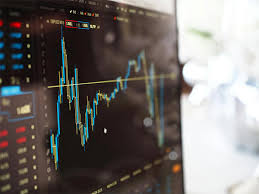The Nairobi Securities Exchange (NSE) managed to regain some strength on Thursday, days after it suffered heavy losses due to tensions between Israel and Iran. Investors in Kenya and across East Africa have been keeping a close watch on the Middle East, where the recent conflict between Tehran and Tel Aviv has affected global stock markets, oil prices, and investor confidence.
Financial analysts in Kenya explained that the sharp fall in investor activity earlier in the week was a direct result of the escalation between the two countries. Since Kenya imports most of its crude oil, any increase in global oil prices affects its economy directly. The rising prices make it more expensive for companies to operate and for people to buy goods and services. This caused panic among investors on the NSE, especially in major financial stocks like Kenya Commercial Bank (KCB) and Equity Group, which dropped as trading opened.
The Central Bank of Kenya quickly noticed the pressure this created on the foreign exchange market. A spokesperson for the bank said the Kenyan shilling came under stress as investors rushed to move their money to safer currencies like the US dollar. However, by Thursday, the shilling gained slightly after investors saw some calm return to the market.
Local investors played a big role in stabilising the NSE. According to reports, large institutions like pension funds and insurance firms began buying shares in big companies to balance out the negative effect of foreign investors pulling their money out. Analysts believe this move by local players helped reduce the overall damage on the stock exchange.
Across the region, the same trend was seen. Stock exchanges in countries like Uganda, Tanzania, and Mauritius also recorded losses early in the week but later showed slight recoveries. South Africa’s stock market followed a similar pattern. These countries all have strong links to the global oil market, so any rise in oil prices usually has a serious impact on their financial systems.
Chris Mwangi, a financial analyst in Nairobi, explained the situation. He said when oil prices go up, inflation follows quickly. This means the cost of fuel, transportation, and food increases, which affects everyone in the country, especially the poor. Higher inflation may also force the Central Bank to increase interest rates, which will make loans more expensive for businesses and individuals.
Oil prices rose sharply during the week, with Brent crude crossing the $80 per barrel mark after news of missile attacks between Iran and Israel. This was the highest jump since the beginning of the conflict. Since Kenya relies heavily on imported fuel, the higher costs are already affecting petrol stations, public transport operators, and manufacturers. Experts at the Treasury warned that even small increases in oil prices could cause inflation and slow down economic growth.
Still, not all parts of the stock market were affected the same way. Some sectors remained strong despite the global tension. Safaricom, the biggest telecom company in Kenya, saw its shares rise, helped by growing customer numbers and excitement around its new mobile money plans expected to launch in 2025. Equity Group also recovered slightly, with news that one of its units might get a Tier-1 banking licence soon.
The agriculture and consumer goods sectors were also steady. Companies like Nation Media Group and Bamburi Cement remained stable due to better demand at home, helped by recent rains that boosted food supply.
Financial experts are advising investors to be careful because the situation in the Middle East remains uncertain. Linda Odhiambo, an investment manager at Mwezi Investments in Nairobi, said it might be wise for investors to shift to safer stocks in areas like healthcare, telecoms, consumer goods, and some banks.
For now, the NSE may continue to improve slowly, but everything depends on what happens next in the Middle East. Any fresh conflict could bring back panic to the markets.
